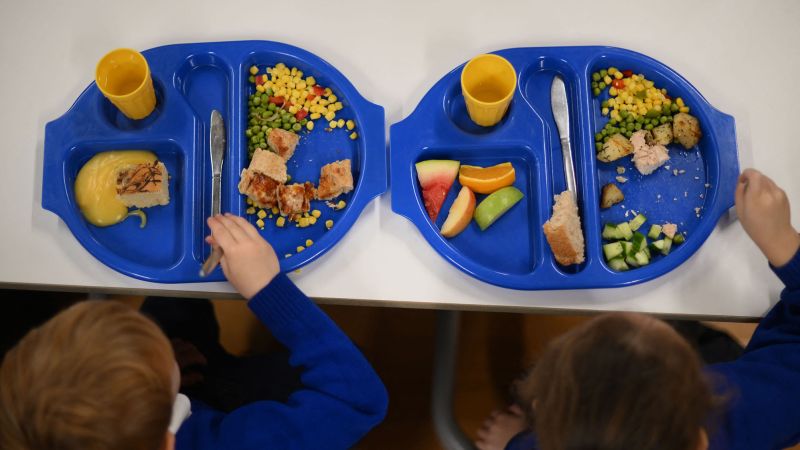London is handing out free meals for all primary school children | CNN Business
London
CNN
—
London’s mayor has announced an emergency program to provide free meals for all children attending state primary schools in the capital, adding to a string of fresh evidence that Brits are struggling to afford necessities.
“The cost-of-living crisis means families and children across our city are in desperate need of additional support,” Sadiq Khan, who himself received free school meals as a child, said in a statement Monday.
The £130 million ($156 million) program will run for the academic year starting in September and save families around £440 ($529) per child. It will also help reduce the “stigma that can be associated with being singled out as low income,” the statement added.
A quarter of all London pupils, including those in high school, already qualify for free school meals according to national criteria largely based on household income, according to official data.
The new program is expected to help around 270,000 pupils who are not currently eligible, according to estimates by researchers for the city government.
This number tallies with an estimate by the Child Poverty Action Group that about 210,000 children living in poverty in London don’t qualify for free school meals because the eligibility criteria are “so restrictive.”
There was further evidence Monday that more and more Brits are struggling to afford food and electricity as inflation, which is near its highest level in four decades, erodes wages and welfare payments.
A survey of 85 food banks by the Independent Food Aid Network, an advocacy group, found that 89% saw demand increase in December and January, compared with the same period 12 months ago.
More than 80% of food banks reported a significant number of people needing help for the first time, as well as an increase in the number of people needing ongoing support rather than occasional food parcels. Just over a third of organizations said they had served staff working for the National Health Service (NHS), which has been hit with successive strikes since December over pay and working conditions.
“Our fastest-growing client group are working people on low wages who cannot make ends meet,” said Su Parrish from The Easter Team, a food bank in Crawley, south of London.
Parrish added that the food bank had provided a “record” number of Christmas parcels and modified their usual contents as “clients told us they wouldn’t be able to afford to put ovens on, even on Christmas Day.”
A survey of more than 2,700 UK adults, published by the Office for National Statistics (ONS) on Monday, found that 51% were worried about keeping warm in their homes this winter.
Some 60% of respondents, who were polled between January 25 and February 5, said they were using less gas or electricity at home to cope with the increased cost of food, fuel and energy bills.
“We hear horror stories of people living in cold flats keeping their entire energy budget for keeping the fridge going,” said Andi Hofbauer of St Aidan’s FoodShare in Leeds.
Also on Monday, a separate ONS survey of nearly 18,500 UK adults between September and January found that 34% of those aged 25 to 34 years reported borrowing more money or using more credit than usual compared with a year ago.
And over half of adults living in rented accommodation said they would be unable to afford an unexpected, but necessary, expense of £850 ($1,000).




